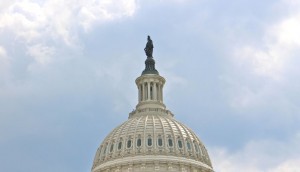
Yesterday Congressman Duncan Hunter introduced HR 2518, the House version of the US Coast Guard Authorization Act for 2018 and 2019. Chapter 807 begins:
“80701. Land-based complementary and backup positioning, navigation, and timing system.
“(a) eLORAN.—Subject to the availability of appropriations, the Secretary shall provide for the establishment, sustainment, and operation of a reliable land-based enhanced LORAN, or eLORAN, positioning, navigation, and timing system.
“(b) Purpose.—The purpose of the system established under subsection (a) is to provide a complement to, and backup for, the Global Positioning System (in this section referred to as ‘GPS’) to ensure the availability of uncorrupted and nondegraded positioning, navigation, and timing signals for military and civilian users in the event that GPS signals are corrupted, degraded, unreliable, or otherwise unavailable.”
While this is the Coast Guard Authorization Act and the Coast Guard is part of the Department of Homeland Security, the bill defines “Secretary” as “the Secretary of Transportation” and directs working through the Commandant of the Coast Guard to make eLoran happen. This is undoubtedly because:
- DoT is the lead federal agency for civil PNT
- DoT still has a pending task from a 2004 National Security Presidential Directive to obtain a backup capability for GPS, and
- The Deputy Secretary of Transportation co-signed a letter to Congress in 2015 saying that the government was going to build an eLoran system – though no action has yet been taken.
- The US Coast Guard has custody of legacy Loran-C infrastructure and equipment upon which an eLoran system could be most economically built. Coast Guard also has residual expertise in Loran technology having operated Loran systems for over 50 years.
As another point of interest, the committees in the House and Senate responsible for Coast Guard authorizations are the same committees with responsibility for Department of Transportation authorizations.
Prior to being passed by the full Congress, this bill will need to be reconciled with the Senate version introduced last week that does not contain similar language about eLoran.

